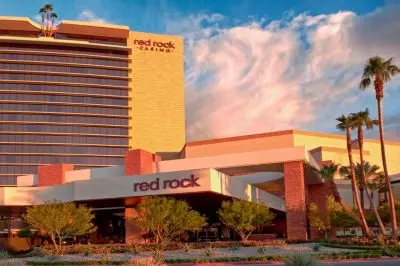 The Nevada Gaming Control Board is set to make a decision in January 2018 if five Station Casinos poker rooms’ customers should share a bad beat progressive jackpot estimated to $120,000. The gaming industry has always taken advantage of so-called “bad beats” – strong poker hands which nevertheless lose to a better hand.
The Nevada Gaming Control Board is set to make a decision in January 2018 if five Station Casinos poker rooms’ customers should share a bad beat progressive jackpot estimated to $120,000. The gaming industry has always taken advantage of so-called “bad beats” – strong poker hands which nevertheless lose to a better hand.
In case that the Gaming Control Board says that the bad beat progressive jackpot should be shared among players, over 80 players could get a cash portion. Currently, under the terms and conditions of the Station’s Jumbo Hold’Em Poker Progressive jackpot, all players who are competing in any of the poker rooms at the time when a bad beat jackpot is hit, gets paid.
The 83-year-old player Avi Shamir could become the largest winner in case that Nevada Gaming Control Board approves of players sharing the jackpot prize. In such case, Mr. Shamir would be granted with a monetary prize estimated to about $60,000, which equals to 50% of the overall jackpot, for losing in a bad beat with a straight flush hand on July 7th in the Red Rock Resort’s poker room. At the time, Mr. Shamir’s hand was beaten by a higher straight flush of Len Schreter.
Is It Bad Beat Jackpot, or Not?
 As mentioned above, when a player hits a bad beat jackpot, all Station poker rooms display a sign in order to notify players they may be eligible for sharing the jackpot. At that time, names and contact information are taken from players by poker room officials, and the sequence of play is verified by the competent supervisors at the site of the winning hand.
As mentioned above, when a player hits a bad beat jackpot, all Station poker rooms display a sign in order to notify players they may be eligible for sharing the jackpot. At that time, names and contact information are taken from players by poker room officials, and the sequence of play is verified by the competent supervisors at the site of the winning hand.
However, some issues occurred at the time when Mr. Schreter topped Mr. Shamir’s hand. A surveillance camera video’s review showed that the winner exposed the two cards he had out of order as the game concluded. However, under the official rules of the Jumbo Hold’Em Jackpot of the Station, the jackpot may be declared not valid in case that hands are being discussed during the play.
Now, the casino operator claims that the cards exposure equalled communication among players, making the jackpot invalid. The players, on the other hand, said that Mr. Schreter revealed his cards after the last card in the sequence of play was dealt, so the final outcome of the game could not be altered in any way, regardless of the cards’ exposure.
The Gaming Control Board of Nevada made a hearing, which gathered about 15 people in its Las Vegas office. All parties presented testimony and were given the chance to question the witnesses. The video of the surveillance camera showed that Shreter tossed the cards face up on the table after the final card was dealt. However, that happened before the dealer asked for the hands to be showed.
As mentioned above, according to the rules of the casino’s jackpot, if a player’s cards are exposed before the action comes to an end at any point, the hand could be questioned. As a result, the operator started a thorough investigation of the case and Nevada Gaming Control Board is set to consider the case on another meeting that is to probably be scheduled for January 10th or 11th.